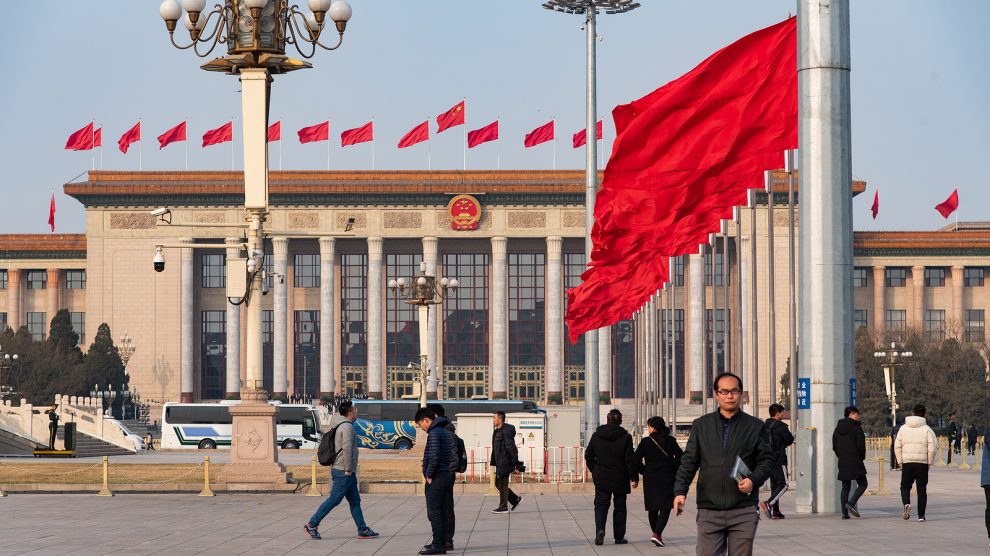A Chinese diplomat’s revealing comments questioning the sovereignty of ex-Soviet states have provoked a backlash across much of Central and Eastern Europe and the Baltics.
Just when it appeared that China’s relationship with the Baltic states of Lithuania, Latvia, and Estonia couldn’t get any rockier, along comes Beijing’s ambassador to Paris.
In a televised interview with French news channel LCI on April 21, the ambassador, Lu Shaye, was asked whether Crimea is part of Ukraine. Lu stated that it “depends on how the problem is perceived” and that the peninsula was “at the beginning Russian” but “offered to Ukraine during the Soviet era”.
Russia annexed the region in 2014 in a violation of international law, something that Lu declined to mention.
Lu then added, “These ex-Soviet Union countries do not have effective status under international law because there is no international accord to concretise their status as a sovereign country.”
- Why Lithuania and Czechia are pursuing closer ties with Taiwan
- As more CEE countries embrace Taiwan, the 3SI could be key to even greater engagement
- CEE’s burgeoning relationship with Taiwan is not just economic and political, it’s cultural
Despite his provocative comments, China has recognised all of countries that formerly made up the Soviet Union since their independence in the early 1990s. Each was only able to become a United Nations member state with China’s support.
Estonia, Latvia, and Lithuania all summoned Chinese diplomats to formally file complaints over Lu’s remarks, while his comments have been roundly condemned across Europe.
Josep Borrell, the High Representative of the European Union for Foreign Affairs and Security Policy, called Lu’s remarks “unacceptable” and said, “The EU can only suppose these declarations do not represent China’s official policy”.
Latvia’s Minister of Foreign Affairs Edgars Rinkēvičs tweeted, “Remarks by the Chinese Ambassador in France concerning international law and sovereignty of nations are completely unacceptable. We expect explanation from the Chinese side and complete retraction of this statement”.
Referencing the port city annexed from China by Russia in the 19th century, Ukraine’s ambassador to Paris—Vadym Omelchenko—quipped, “Next time it will be good to expand ‘who owns Vladivostok?’”.
“There is no room for ambiguity. Crimea is Ukraine,” Omelchenko added. “The Soviet empire no longer exists. The story moves forward.”
On April 24, a spokesperson for China’s foreign ministry said, “China respects the sovereign status of the former Soviet countries after the dissolution of the Soviet Union” and specified that this was “the official position of the Chinese government”, but whatever trust may have remained between China and the Baltic countries after a series of recent diplomatic crises appears to have been even further damaged.
“If anyone is still wondering why the Baltic states don’t trust China to ‘broker peace in Ukraine’, here’s a Chinese ambassador arguing that Crimea is Russian and our countries’ borders have no legal basis,” said Lithuanian Foreign Minister Gabrielius Landsbergis.

Deteriorating relations
Before Russia’s 2022 invasion of Ukraine, Beijing had declared a “no-limits friendship” with Moscow. However, just as it mediated the restoration of ties between Saudi Arabia and Iran, China has also sought to position itself as a neutral peacemaker in Ukraine.
While the 12-point peace plan China announced in late February 2023 calling for a ceasefire and resumed peace talks has been criticised for its vagueness, reporting suggests Beijing has worked to de-escalate the threat of an offensive nuclear strike by Russia through military-to-military backchannels.
While French President Emmanuel Macron has continued to seek Beijing’s help ending the war in Ukraine and recently warned Europe against following the United States into a conflict with China over Taiwan, the Baltic states have distanced themselves from China and increasingly deepened ties with Taiwan in recent years.
All three Baltic countries have left the China and Central and Eastern European Countries (China-CEEC) initiative. Lithuania withdrew in spring 2021, and Latvia and Estonia pulled out in August 2022.
After leaving China-CEEC, Lithuania’s government condemned Beijing’s persecution of its Uyghur minority as “genocide” and approved plans for the opening of a de facto embassy by Taiwan in Vilnius using the name ‘Taiwanese Representative Office’ rather than globally-recognised convention of ‘Chinese Taipei’. Following these actions, China downgraded its diplomatic relations with Lithuania and blocked imports from Lithuania as well as goods from other European countries that contained Lithuanian parts.
In January 2023, the EU initiated a trade dispute against China at the World Trade Organisation over its undeclared indirect secondary sanctions and other trade restrictions on Lithuania.
There are key disagreements within both the EU and China about how to engage with the other.
Lu’s remarks and the Chinese foreign ministry’s walk-back come shortly after personnel reshuffles within the ministry that could signal a desire to move away from the provocative “wolf warrior diplomacy” approach exemplified by Lu’s words.
As the war in Ukraine rages on and transpacific tensions continue to escalate, it remains to be seen the extent to which the EU can unify around a shared security policy for not only regional, but global, issues.
Unlike many news and information platforms, Emerging Europe is free to read, and always will be. There is no paywall here. We are independent, not affiliated with nor representing any political party or business organisation. We want the very best for emerging Europe, nothing more, nothing less. Your support will help us continue to spread the word about this amazing region.
You can contribute here. Thank you.







Add Comment